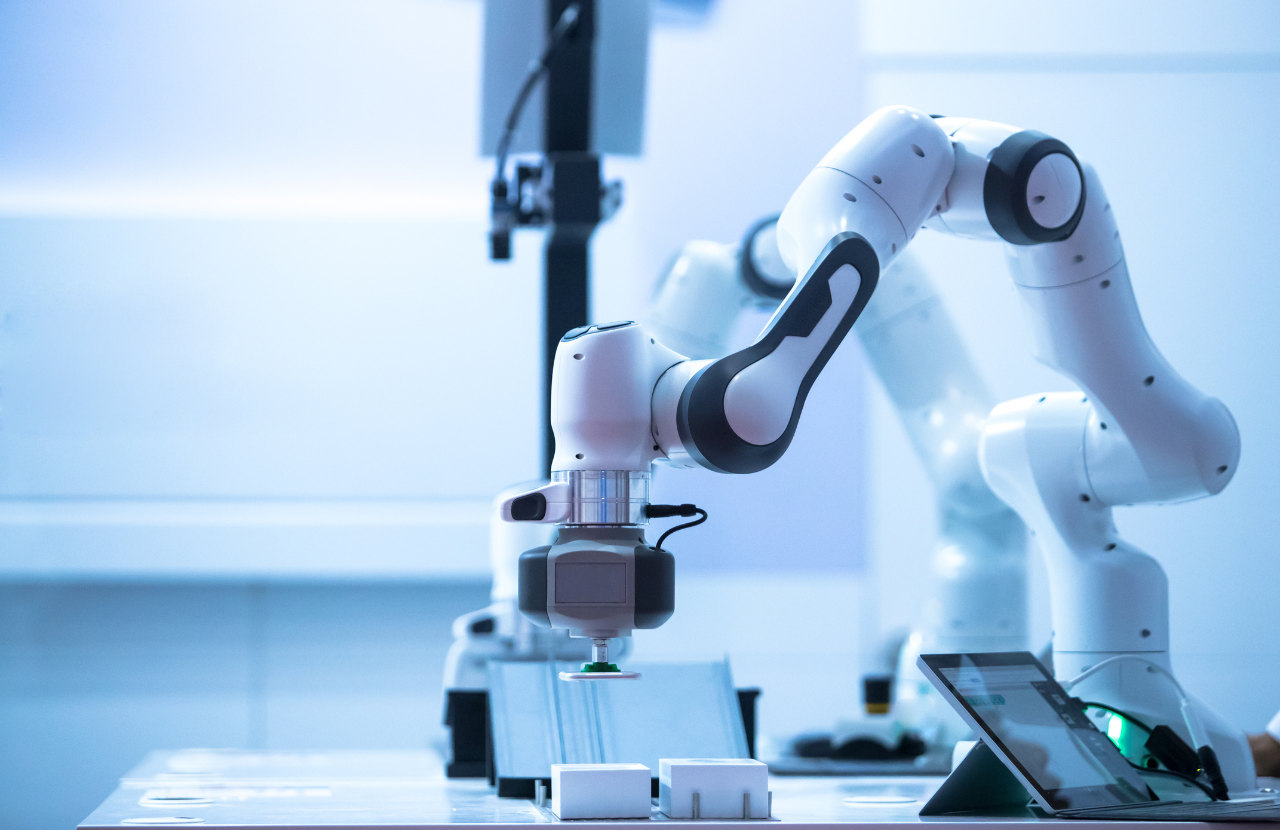
The integration of artificial intelligence (AI) and automation into the workplace is rapidly transforming the nature of work. While new technologies have the potential to reduce the physical demands of work, they also raise concerns about artificial intelligence and safety.
Here we discuss how artificial intelligence may increase musculoskeletal disorders and how you can ensure your employees remain healthy and productive in the age of AI.
The changing nature of work – artificial intelligence and safety
Automation and artificial intelligence in the workplace is revolutionising industries by taking over tasks that were once performed manually.
Manufacturing, healthcare, customer service, and the creative sectors are increasingly relying on AI-driven systems for tasks ranging from assembly line production to data analysis and content creation. This shift is changing the physical and cognitive demands placed on workers.
In many cases, automation and AI in the workplace has reduced the need for physically demanding jobs, such as heavy lifting or manual assembly. However, it has also increased the time workers spend interacting with computers, robots, and automated systems. This means it is important to consider artificial intelligence and safety risks.
This prolonged interaction, coupled with the repetitive nature of certain tasks, can give rise to new forms of musculoskeletal disorders (MSDs), which are injuries and disorders affecting the human body’s movement or musculoskeletal system.
What are the unique ergonomic challenges?
Traditional ergonomic concerns have centred on heavy lifting, awkward postures, and repetitive manual tasks. However, as AI and automation take over physically strenuous tasks, the focus is shifting towards the ergonomic implications of prolonged computer use and interaction with AI-driven systems.
Repetitive strain injuries (RSIs)
The repetitive nature of human-AI interactions—such as data entry, monitoring AI systems, and using automated tools—can lead to RSIs. These injuries are caused by repetitive motions, such as typing or clicking, which can strain the hands, wrists, shoulders, and neck over time.
Prolonged sedentary behaviour
The automation of tasks means that more employees will spend long periods of time sitting at desks.
Prolonged sitting, particularly in poorly designed workstations, can lead to lower back pain, neck strain, and other musculoskeletal issues.
Sedentary behaviour is associated with cardiovascular disease and obesity, which can further exacerbate musculoskeletal issues.
Human-robot interaction
While robots can take over physically strenuous tasks, the need for human oversight and intervention can lead to awkward postures and sudden movements, particularly when employees need to respond quickly to an issue.
The design of robotic interfaces and control systems can either mitigate or exacerbate ergonomic risks, depending on how intuitive and user-friendly they are.
How can workplaces adapt?
Here are some strategies that can help mitigate the risk of musculoskeletal disorders in this evolving landscape:
Dynamic workstations
One way to counteract the effects of prolonged sitting and repetitive tasks is to implement dynamic workstations. These can include sit-stand desks, which allow workers to alternate between sitting and standing, reducing the strain on any one part of the body.
Workstations that encourage movement, such as treadmill desks or those with adjustable monitors and keyboards, can also help reduce the risk of musculoskeletal issues.
Regular short breaks
Microbreaks—short, frequent breaks lasting just a few minutes—can be particularly effective in preventing strain.
During these breaks, workers should be encouraged to stretch, move around, and change positions to alleviate the physical tension caused by prolonged static postures.
Ergonomic training
As the nature of work changes, so too should the training provided for employees.
Ergonomic education should focus not only on traditional concerns like lifting techniques but also on how to interact with AI systems and automated tools in a way that minimises physical strain.
Training should include guidance on proper posture, the importance of regular movement, and how to set up a workstation that reduces the risk of injury.
Human-centric AI interfaces
The design of AI systems and interfaces should prioritise ergonomic considerations. It is important to consider artificial intelligence and safety by choosing interfaces that are intuitive, reducing the need for repetitive actions, and allowing for easy adjustments to accommodate different user needs.
AI systems should be designed with user-friendly controls that minimise the physical effort required for interaction, and interfaces should be positioned to promote natural postures.
Risk management training – Praxis42 IOSH Managing Safely
Praxis42 is proud to offer IOSH Managing Safely, a comprehensive course that equips managers with the skills to identify and address common workplace risks, including ergonomic challenges in a changing world.
Developed by well-respected health and safety professionals, in partnership with our experienced eLearning team, this comprehensive course covers all aspects of health and safety requirements, so managers understand how to carry out their responsibilities.
To find out more about IOSH Managing Safely, please visit our website or contact our friendly team on 0203 011 4242/info@praxis42.com

Adam Clarke
Managing Director (Consulting)
